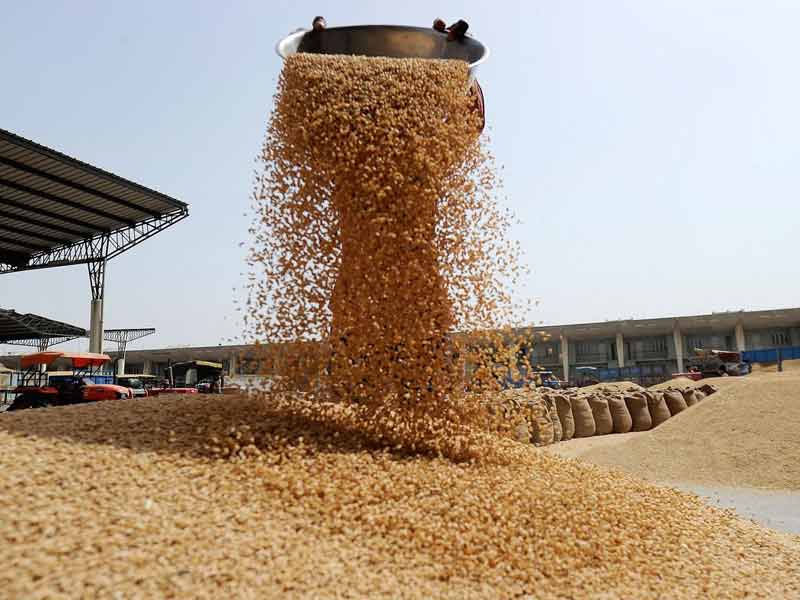The Centre said on Wednesday that it will no longer sell wheat and rice to states under the Open Market Sale Scheme (OMSS) as of June 13 to maintain an appropriate buffer stock and restrain price growth amid worries that the Kharif crop may suffer owing to an anticipated deficit in monsoon rainfall.
Minister of State for Food and Consumer Affairs Sadhvi Niranjan Jyoti notified the Lok Sabha of this in a written response.
The Centre said on Wednesday that it will no longer sell wheat and rice to states under the Open Market Sale Scheme (OMSS) as of June 13 to maintain an appropriate buffer stock and restrain price growth amid worries that the Kharif crop may suffer owing to an anticipated deficit in monsoon rainfall. Minister of State for Food and Consumer Affairs Sadhvi Niranjan Jyoti notified the Lok Sabha of this in a written response.

The sale of wheat and rice under the Open Market Sale Scheme (Domestic) for State Governments, including Tamil Nadu, has been discontinued due to the anticipated deficit in rainfall caused by El Nino, as predicted by IMD, which could negatively affect Kharif crop production in the nation. Additionally, to control inflationary trends and to maintain adequate stock levels under the central pool for distribution under the National Food Security Act and other welfare schemes.
In response to a different question on wheat, the minister stated that 262.02 lakh tonnes of the crop were purchased at the minimum support price (MSP) during the rabi marketing season 2023–24 (April–March), which is a 39.43% increase over 187.92 lakh tonnes the year prior.
In contrast to the buffer requirements of 275.80 lakh tonnes as of July 1, 2023, “the stock position of wheat under the central pool is 301.45 lakh tonnes. “It is clear that the wheat stock level is significantly higher than what the buffer norms require,” she added.
Also read: Phangnon Konyak becomes Nagaland’s first woman MP
187.92 lakh tonnes of wheat were purchased last year.
Early summer and the geopolitical environment contributed to an increase in wheat prices worldwide. However, because the majority of farmers sold their goods to private merchants at higher market rates, farmers all around the nation benefited from the higher market rates, the minister stated.
Due to the termination, the state governments of Karnataka, West Bengal, and Tamil Nadu did not get the wheat and rice they sought under the OMSS (D) Policy.

























